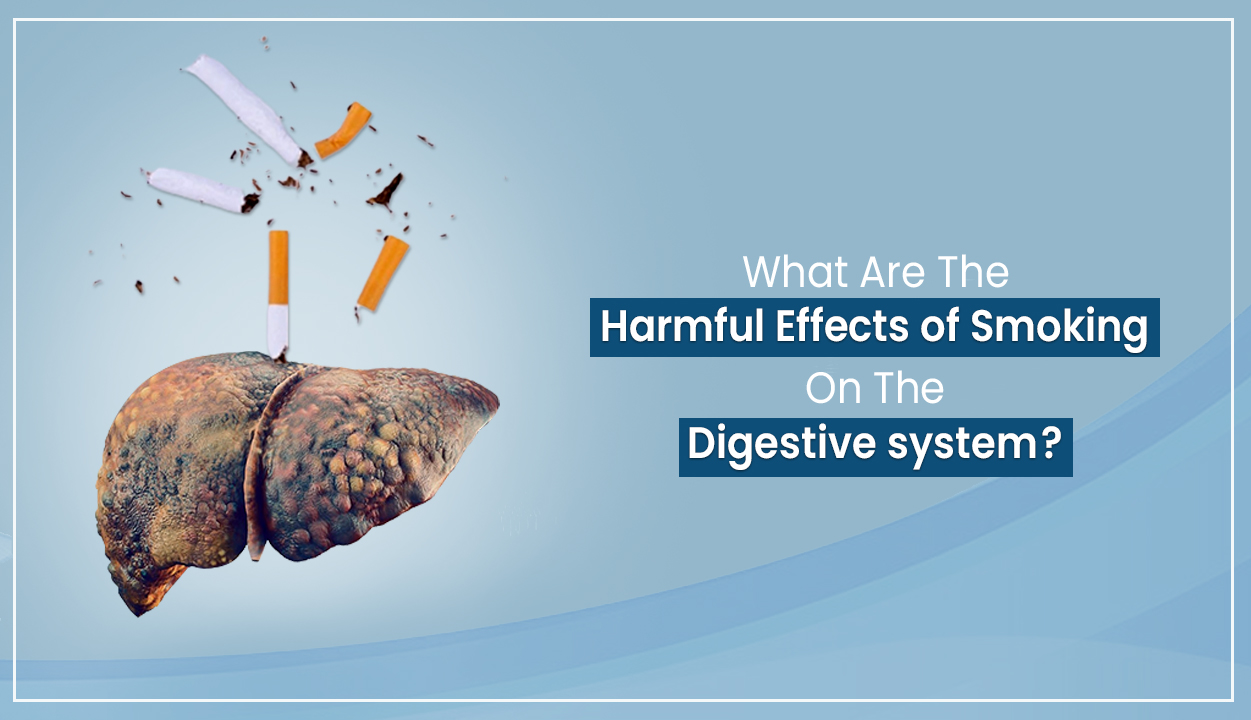
What are the harmful effects of smoking on the digestive system?
We’ve all seen it time and time again — the stark message staring at us across billboards, packaging, and TV screens: “Cigarette smoking is injurious to health”. But how often do we stop to think about the actual import of this statement? Most of us are well aware of the respiratory ailments linked to smoking, but what about the effects it has on other, less obvious parts of our body and its functions? For example, how many of us even considered the possibility that it could affect our digestive system? Today, let’s delve into just this particular aspect of how harmful smoking can be.
Gastrointestinal Diseases That Are Further Affected by Smoking
There are a plethora of gastrointestinal diseases and conditions that seem to be directly connected to the bad habit of smoking. Let’s talk about a few today, like peptic ulcers, inflammatory bowel disease, esophageal cancer, colorectal cancer, and pancreatic cancer.
Smoking and the Pain of Peptic Ulcers
Smoking increases the risk of peptic ulcers, which are painful sores found in the stomach lining. It also impedes the healing process, making these ulcers a recurrent nightmare for smokers. In fact, often, smoking cessation forms an essential part of the treatment.
The Connection with Inflammatory Bowel Disease
Environmental factors play a big role in inflammatory bowel diseases like Crohn’s disease. There is evidence that points towards smoking being one of the environmental risk factors that have the potential to significantly worsen an inflammatory bowel disease.
Smoking Can Cause Esophageal Cancer
One of the most harrowing effects of smoking on the digestive system is the increased risk of various cancers. Among them, esophageal cancer ranks high. Tobacco also weakens the sphincters of the esophagus which leads to stomach acid entering it. This can cause gastroesophageal reflux disease, another risk factor for esophageal cancer.
Tied to Colorectal Cancer from the Beginning until the End
Colorectal cancer affects the colon or rectum, and smoking makes it much more likely for you to contract it. Instead of just stopping at increasing the risk of getting it, smoking also leads to recurrences and an increased risk of dying of colorectal cancer.
The Silent Killer: Pancreatic Cancer
Smoking is known to be one of the more significant risk factors leading to pancreatic cancer, which can be a very deadly type of cancer. In fact, carcinogenic components present in cigarette smoke even stimulate pancreatic cancer progression. Continuing to smoke can thus increase one’s risk of dying from pancreatic cancer.
The Power of Change and a Hopeful Ending to the Tale of Smoking
Yet, while we see that smoking’s detrimental impact on the digestive system is a pressing health concern, there is hope. Go by the age-old saying “Better late than never” and quit smoking right away in order to stop the damage in its tracks. It has been seen in many smoking-related health conditions, like pancreatic cancer, that the effects of smoking on their progression decrease over time. If you couldn’t catch the best time for smoking cessation — the day you started, go ahead and catch the second-best one — right now! Your digestive system will be among the many systems that will thank you for it.
